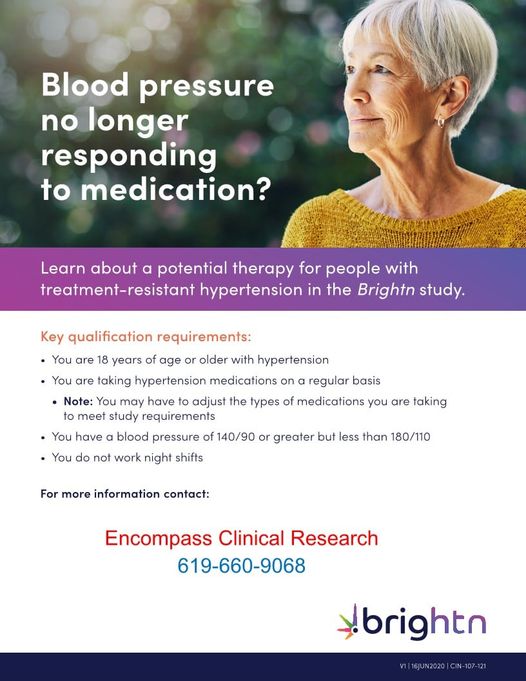ADHD (Attention Deficit Hyperactivity Disorder) is a neurodevelopmental disorder characterized by persistent patterns of inattention, hyperactivity, and impulsivity that significantly impact daily functioning. While Attention Deficit Hyperactivity Disorder is commonly diagnosed in childhood, it can also persist into adolescence and adulthood, affecting academic performance, social relationships, and overall quality of life. In this blog, we will raise awareness with the help of doctors like Dr. Hanid Audish about Attention Deficit Hyperactivity Disorder by discussing its signs and symptoms in children and adolescents, as well as the importance of early identification and intervention. More about Hanid.
Understanding Attention Deficit Hyperactivity Disorder Symptoms
ADHD symptoms can manifest differently in children and adolescents, making it essential to recognize the various presentations of the disorder. Inattention symptoms may include difficulty sustaining attention, making careless mistakes, and frequently losing items. Hyperactivity symptoms often involve excessive fidgeting, difficulty staying seated, and talking excessively. Impulsivity symptoms may manifest as blurting out answers, interrupting others, and acting without considering consequences. Understanding these symptoms is crucial for identifying children and adolescents who may be struggling with Attention Deficit Hyperactivity Disorder and providing them with appropriate support and resources.
Moreover, Attention Deficit Hyperactivity Disorder symptoms can vary in severity and may fluctuate depending on environmental factors and individual differences. Some children may exhibit primarily inattentive symptoms, while others may display predominantly hyperactive-impulsive symptoms or a combination of both. By recognizing the diverse presentations of Attention Deficit Hyperactivity Disorder, parents, teachers, and healthcare professionals including doctors like Dr. Hanid Audish tailor interventions and accommodations to meet the unique needs of each child or adolescent.
Early Identification and Diagnosis
Early identification and diagnosis of Attention Deficit Hyperactivity Disorder are essential for ensuring timely intervention and support for affected children and adolescents. However, Attention Deficit Hyperactivity Disorder is often underdiagnosed or misdiagnosed due to overlapping symptoms with other conditions and misconceptions about the disorder. It is crucial for parents, teachers, and healthcare providers to be vigilant for signs of Attention Deficit Hyperactivity Disorder and to seek professional evaluation if concerns arise.
Diagnostic assessments for ADHD typically involve comprehensive evaluations by healthcare professionals, including pediatricians, psychologists, doctors like Dr. Hanid Audish or psychiatrists. These assessments may include interviews with parents and teachers, behavioral observations, rating scales, and psychological testing to assess attention, impulsivity, and hyperactivity. Through careful evaluation and collaboration between parents, educators, and healthcare providers, an accurate diagnosis of Attention Deficit Hyperactivity Disorder can be made, allowing for the implementation of appropriate interventions and support strategies.
Impact on Academic Performance
Attention Deficit Hyperactivity Disorder can have a significant impact on academic performance and educational attainment in children and adolescents. The challenges associated with inattention, impulsivity, and hyperactivity can interfere with the ability to focus, organize tasks, and complete assignments. As a result, children with Attention Deficit Hyperactivity Disorder may struggle academically, leading to lower grades, increased absenteeism, and academic underachievement.
Furthermore, Attention Deficit Hyperactivity Disorder-related difficulties may extend beyond academic settings, affecting social interactions, peer relationships, and extracurricular activities. Children and adolescents with Attention Deficit Hyperactivity Disorder may experience social rejection, peer victimization, and feelings of frustration or low self-esteem due to their symptoms. It is essential for educators and school personnel to recognize the academic and social challenges faced by students with Attention Deficit Hyperactivity Disorder and to provide them with appropriate accommodations, support services, and behavioral interventions to promote academic success and social well-being.
Behavioral and Emotional Regulation
Children and adolescents with Attention Deficit Hyperactivity Disorder often struggle with behavioral and emotional regulation, leading to difficulties in self-control, emotion management, and impulse control. These challenges may manifest as outbursts of anger, emotional dysregulation, and difficulty following rules or instructions. Additionally, individuals with Attention Deficit Hyperactivity Disorder may be more prone to engaging in risky behaviors, such as substance abuse, reckless driving, and impulsivity-driven decisions.
Effective management of behavioral and emotional regulation difficulties in children and adolescents with ADHD requires a comprehensive and multi-disciplinary approach. This may include behavioral therapy, cognitive-behavioral interventions, parent training programs, and pharmacological treatments, depending on the individual's needs and preferences. By providing children and adolescents with Attention Deficit Hyperactivity Disorder with strategies for managing their emotions, impulses, and behaviors, parents, educators, and healthcare professionals including doctors like Dr. Hanid Audish help them develop essential skills for success in school, relationships, and life.
Family and Peer Relationships
Attention Deficit Hyperactivity Disorder can also impact family dynamics and peer relationships, posing challenges for both affected individuals and their loved ones. Parents of children with Attention Deficit Hyperactivity Disorder may experience feelings of frustration, guilt, and stress as they navigate the demands of parenting a child with unique needs. Siblings may also be affected by the attention and resources allocated to the child with Attention Deficit Hyperactivity Disorder, leading to feelings of resentment or neglect.
Additionally, children and adolescents with Attention Deficit Hyperactivity Disorder may encounter difficulties in forming and maintaining friendships due to their symptoms. They may struggle with social skills such as listening, taking turns, and regulating their behavior in group settings. Peer rejection and social isolation can further exacerbate feelings of loneliness, low self-esteem, and depression in individuals with Attention Deficit Hyperactivity Disorder.
Raising awareness about Attention Deficit Hyperactivity Disorder and its impact on children and adolescents is essential for promoting early identification, intervention, and support. By recognizing the signs and symptoms of Attention Deficit Hyperactivity Disorder, understanding its impact on academic performance, behavioral and emotional regulation, and family and peer relationships, and advocating for comprehensive assessment and treatment with the help of doctors like Dr. Hanid Audish, we can ensure that children and adolescents with Attention Deficit Hyperactivity Disorder receive the resources and support they need to thrive.
Through education, awareness, and collaborative efforts between parents, educators, healthcare professionals, and communities, we can make a positive difference in the lives of individuals with ADHD and empower them to reach their full potential.






Comments